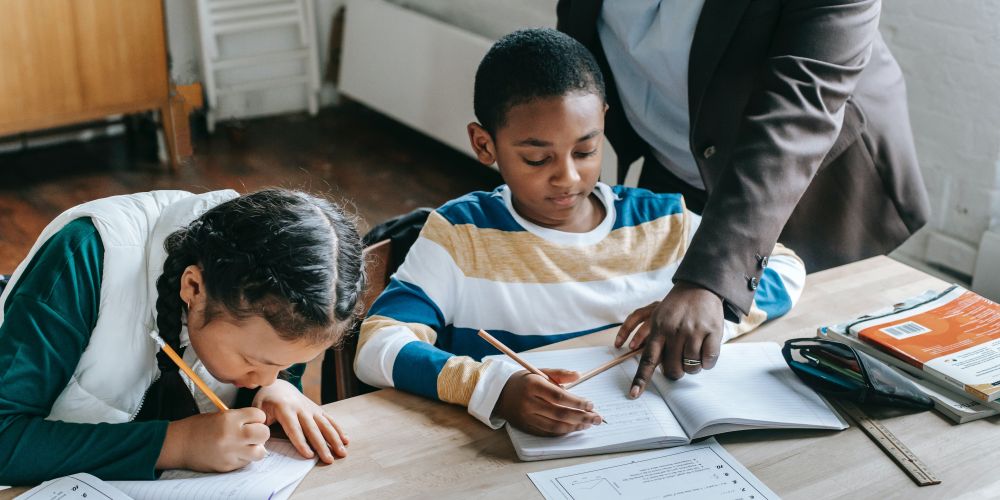September 8, 2021

As children across the country prepare to return to school, make sure your kids are feeling heard and supported as they navigate in-person classes this year. COVID-19 has taken a large toll on our mental health, and children especially, may not be well equipped to process their thoughts and feelings. Children and adolescents often react by how they see adults around them react. When parents, family, and those close to them deal with COVID-19 in a calm and confident manner, kids are provided reassurance and an example of how to cope in uncomfortable situations.
Here are a few tips on how to help your children cope with going back to school. Make sure that your child has a daily routine with regular times for meals, naps, and bedtimes at home. Having a rested body and knowing what to expect at home helps children prepare for the day.
Talk to them about their feelings. Ask them how they feel about going back to school, and what concerns they have. Journaling is a safe outlet for children to express their thoughts and navigate their feelings. You can help your child set up a journal and encourage them to write short daily reflections. This can be as simple as answering the question: What made you happy or sad today? Or, what activity did you enjoy most today? Actionforhealthykids, Scholastic, and Parent's.com have fun journaling ideas and prompts you can try with your child.
Children take comfort and feel safe spending time with you, their parents. You can support your child by spending time engaging in meaningful activities such as reading together, exercising, playing board games, colouring together, or even walking the dog together. You can also be a good role model by making self care a priority. Remember to take breaks from work, get plenty of sleep, exercise, and eat well. Connect with your friends and family members. Children look up to their parents, and seeing role models prioritizing self care can encourage children to do the same.
Not all children and teens respond to stress in the same way, some common changes to watch for include:
If you notice that your child’s symptoms of anxiety, or other behaviour problems are persistent and getting worse, speak with a pediatrician or other healthcare professionals as they can give you guidance on ways to best support your child and help them build resilience.

GOeBlogger is a health enthusiast and avid reader living and thriving in vibrant Vancouver. When she's not nerding out at her laptop, you can find her exploring the beautiful BC coastline with her dog.

Connect with us online for a virtual and personal consultation for minor illnesses.
Call us at 1-866-318-4748
Send us an email
Sign up for the latest news and offers delivered to your inbox.